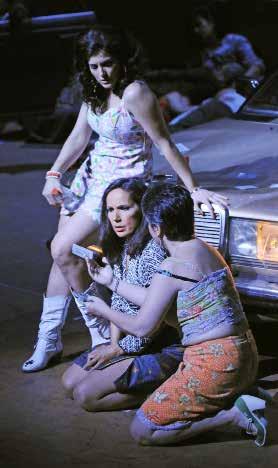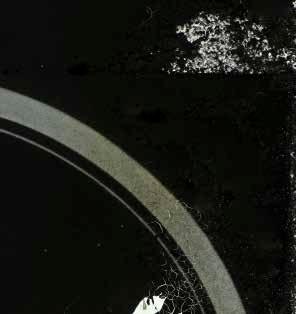
2 minute read
CARMEN
Despite the failure of its premiere on 3 March 1875 at the Opéra-Comique, Georges Bizet would die three months later, never suspecting that his score would become one of the most beloved in the world.
The literary model for the opera, a novella of the same name by Prosper Mérimée, depicts Carmen as a morally depraved person who unscrupulously exploits men for her own ends. Georges Bizet and his librettists, on the other hand, transformed the main character into an immortal persona because of her untamed freedom, marked by fatality: a fascinating cigarette-maker whom men find attractive precisely because she refuses to accept traditional norms. Her dazzling, non-conformist personality is reflected in the habanera, “L’amour est un oiseau rebelle” (Love is a Rebellious Bird), a dance of Afro-American origin; powerful yet tender.
Advertisement
A production in which Bieito made his operatic debut at the distant 1999 Peralada Festival has become mythical. In this piece, freedom is non-negotiable and absolute and Carmen preserves her deeply Iberian edges and fiery temperament. This rebel is a wholly contemporary creature. Temptress and indulgent, she lives by an urgent desire to live fully.
It is a story full of misunderstandings: love is confused with desire, an affair with an exclusive relationship, affection with possession and violence with passion. But the highest price in this web of dysfunctional relationships is paid by Carmen, a woman who loves her independence. The heroine challenges Don José at the end of the opera; she lives intensely on a knife edge.
«Jamais Carmen ne cédera: libre elle est née, et libre elle mourra».
Carmen (Final Duet, Act III)
Clémentine Margaine plays the lead, while Charles Castronovo reveals the wounds and desperate cracks of the soldier Don José. The figure of Micaëla, sung by Adriana González, who did not exist in the literary version, is the counter-figure of Carmen. Who better than Josep Pons, the theatre’s senior conductor and a specialist in French music, to unravel the eroticism of its unforgettable melodies?

Cl Mentine Margaine
Mezzo-soprano. Trained at the Paris Conservatoire, she was a member of the Ensemble of the Deutsche Oper Berlin, where she sang the title role in works such as Carmen, one of her most emblematic roles, and Samson et Dalila. This allowed her to discover the role of Carmen, one of her most emblematic characters. Since then, she has sung in the most important opera houses in the world. She made her debut at the Gran Teatre del Liceu in the 2017/2018 season with La favorite and returned with Aida (2019/20).
Charles Castronovo
Tenor. Born in New York, he began his career as a resident singer at LA Opera in Los Angeles. He then joined the Lindemann Young Artist Development Program at The Metropolitan Opera in New York and in 1999 made his New York opera debut as Beppe (Pagliacci) opposite Plácido Domingo. He made his debut at the Gran Teatre del Liceu in the 2014/15 season with La traviata.
Sim N Orfila
Bass. He began his musical studies at the Conservatorio de Menorca and later at the Escuela Reina Sofia in Madrid with Alfredo Kraus. His repertoire includes titles such as Don Giovanni, Le nozze di Figaro, Norma, Anna Bolena, L’elisir d’amore, Maria Stuarda, Lucia di Lammermoor, Don Pasquale and La favorita. He made his debut at the Gran Teatre del Liceu in the 1998/99 season with Norma and has returned with I Capuleti e i Montecchi (2015/16), Don Giovanni (2016/17), L'italiana in Algeri (2018/19) and Macbeth (2022/23).
Jeanine De Bique
Soprano. She has recently sung roles such as Susanna (Le nozze di Figaro) and Alcina at the Opéra national de Paris, Anaïde (Moïse et Pharaon) at the Aix-en-Provence Festival, Poppea (L'incoronazione di Poppea) at the Budapest Festival and Folie (Platée) at the Theater an der Wien. She has worked with master conductors like Gustavo Dudamel, Lorin Maazel and William Christie. She made her debut at the Gran Teatre del Liceu in the 2020/21 season with the concert version of Platée
Les mans eren de vidre
Les mans eren de vidre: qui podia trencar-les?
Pel glaç d’ordides llàgrimes els dits van perdre els gestos i arrels que no esperaven llavor de la sequera en l’aigua erta amaren.
Nua creixença altiva de pluja inconfessada que de les mans venia.
—Susanna Rafart, La llum constant (2013)




